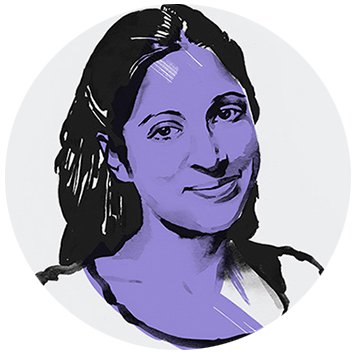Biotechnology & medicine
Rumi Chunara
Crucial information about disease outbreaks can be gleaned earlier.
Illustration by Sam Kerr

Global
Kathryn Whitehead
A systematic search discovered nanoparticles that could improve drug delivery.

Global
Emily Balskus
More precise knowledge of the bacteria in our guts could lead to better-targeted treatments for chronic conditions.

Asia Pacific
Zhi Yang
Smart Sensor Electronics for Wearable and Implantable Applications

Europe
Héctor Gómez
New methods to predict the evolution of the stages of prostate cancer
